A look at why organic bras and underwear, as well as sustainable and organic clothing is important to our health and the environment. Plus a recommendation for the best organic bras and underwear!

Disclaimer: This post includes affiliate links, and I will earn a small commission if you purchase through these links. Please note that I’ve linked to these products purely because I recommend them, and they are from companies I trust. There is no additional cost to you.
So many of the bras and underwear today are made from synthetic materials. One problem with this is they don’t breathe, which allows moisture to get trapped. Moisture is a problem because it can allow bacteria and yeast to grow.
While many sustainable fashion companies choose to use organic cotton, some brands have also chosen other natural fibers to manufacturer their textiles, like hemp and bamboo, which are also great options.
Hemp and bamboo fabric are also eco-friendly materials that provide breathable natural fabrics. Bamboo is generally grown without pesticides, so the use of organic bamboo isn’t as important as with organic cotton.
Why use cotton under garments instead of synthetic fabrics?
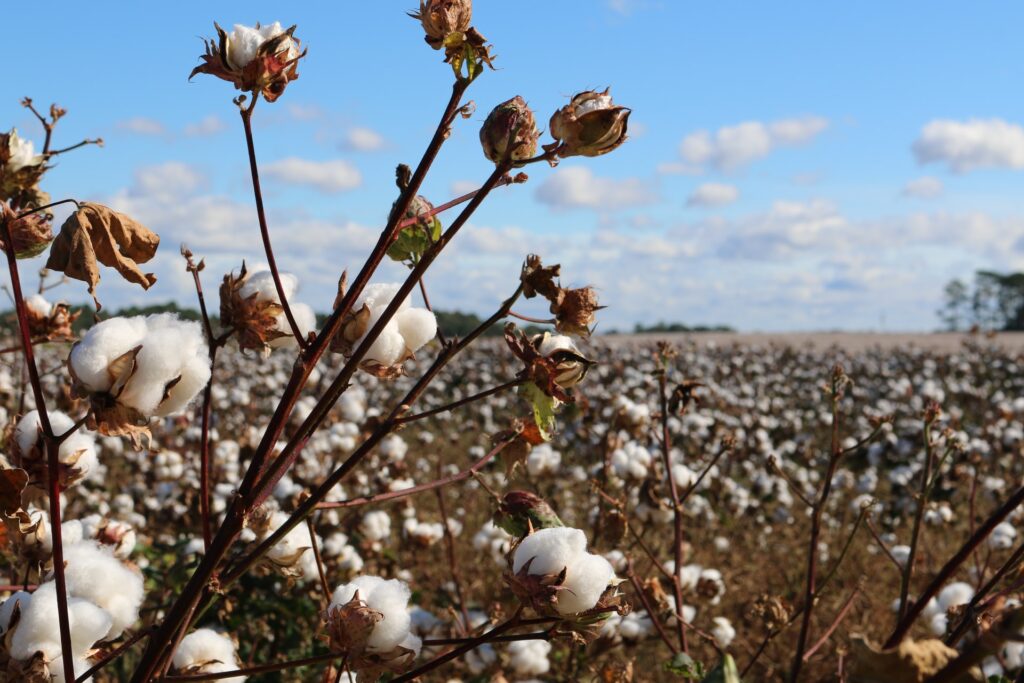
The demand for fast fashion has led much of the fashion industry to produce clothing in the least expensive way. This has led to our clothes being produced with toxic chemicals that are bad for us and our planet.
Conventional cotton is one of the most pesticide treated crops. Dangers of pesticides include disrupting the gastrointestinal tract, respiratory tract, skin and may be carcinogenic – even with skin contact, without ingesting.
Those pesticides can then be carried into the clothing made from the conventional cotton.
Toxic chemicals that can be found in clothing
Formaldehyde, a known carcinogen, is used on a lot of clothing which can then leech into our skin from the clothes. Formaldehyde is used in synthetic blends and wrinkle resistant fabrics.
In a study done by Greenpeace, it was found that phthalates, nonylphenol ethoxylates (NPEs) and azo dyes were present in a large amount of the clothing tested. While this study was small, testing 141 articles of various clothing, including underwear, it is significant.
Azo dyes are known to be associated with human toxicity and many have been banned. They are a known carcinogen and also linked to skin and respiratory problems.
Opting for natural dyes is a much safer option.
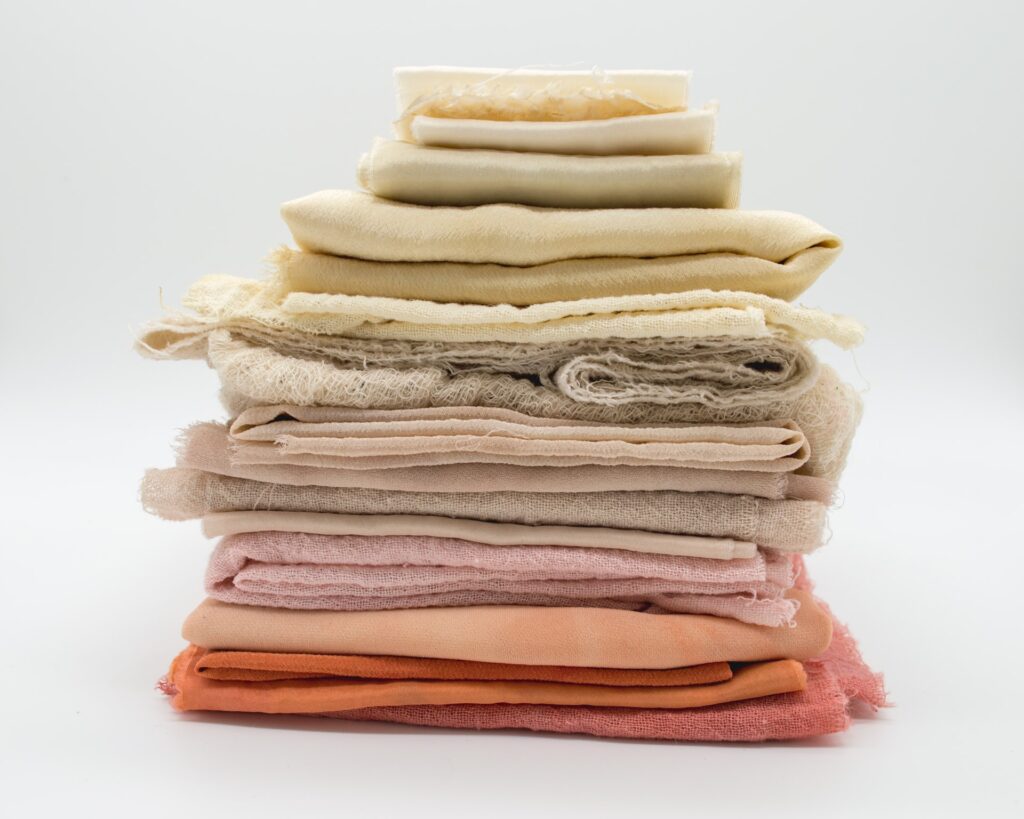
As previously discussed in European vs American Cosmetic Safety Standards article, phthalates are an endocrine disruptors and have been linked to health problems such as birth defects and cancer.
In an evaluation of a study done on potential genotoxicity of phthalates esters (PAEs) in perfumes using in vitro assays, it is stated “This study demonstrates for the first time the possible contribution of PAEs in perfumes to DNA damage and suggests that their use as solvents or fixatives should be regulated.”
Nonylphenol ethoxylates or NPEs breakdown into nonylphenols (NPs), which are endocrine disrupting chemicals and have been heavily shown to alter sexual development, especially in fish. This is a problem since many of these chemicals are washed away during production and when washing clothes, where the water eventually ends up in rivers and oceans.
When we think about how vulnerable our genitals are, the idea of having such toxic chemicals in close contact is frightening. Buying bras and underwear made from organic materials can reduce our risk of exposure.
Environmental impact of synthetic fabrics
It’s important to also look at the impacts of using chemicals for textile production and putting them back into the environment. Washing synthetic fabrics is estimated to be responsible for 500,000 tons of microplastics into the ocean each year. That’s about the same as 50 billion plastic bottles.
According to Business Insider, the fashion industry is responsible for 20% of water pollution. This, in large part is due to the toxic chemicals used during production.
Certifications to consider when buying organic bras and underwear
A company can claim they are “toxin free,” “all natural” or “clean” without any type of certification. The first thing to look for when looking for an organic bra or underwear is the certification (s) a company holds.
There are a variety of certifications you can look for to ensure you are buying a product free from these chemicals.
While there are many different certifications, it does not mean a company needs to have all of them. Many certifications have similar standards and aim for the same outcome.

Global Organic Textile Standard – GOTS
In order for a product to be GOTS certified, it must include 70% certified organic fibers. If a product is to be labeled “organic,” it must contain 95% certified organic fibers.
The certified organic fiber must be certified by a third party and approved in the IFOAM Family of Standards.
The entire supply chain, from first processing stages to manufacturing and trading, must meet GOTS standards, which follow the international or national organic farming standards approved by IFOAM.
Strict criteria are in place to make sure a product is produced without harming the environment and with social standards to ensure a working environment free from harassment, child labor and discrimination (to name a few).
This certification is great for basic clothing, such as t-shirts, loungewear, bras and underwear.
Oeko-Tex Standard 100
The Oeko-Tex certification doesn’t ensure a product is organic, but every piece of the product is tested for harmful substances. The testing is looking for products with low or non-existent values of substances like formaldehyde, heavy metals and pesticides.
There are different maximum allowed amounts of substances in products depending on class. Those products are broken down into four different classes.
- Baby products, which have the strictest standards and limit values.
- Products with large amounts of direct skin contact, such as mattresses and clothing such as shirts, underwear and bras.
- Products with minimal skin contact, such as jackets and belts.
- Products for decoration, such as curtains and upholstery fabrics.
This certification is great for non-clothing items, such as mattresses, home décor, toys outerwear clothing.
Oeko-Tex Made Green
The Oeko-Tex Made Green certification must meet all requirements of the The Oeko-Tex Standard 100 certification but adds another layer of requiring a product is environmentally safe and socially responsible. This means a company has traceable supply chains, fair working conditions and policies banning hazardous chemicals in place.
Made Safe
Made Safe is a certification that tests products for safety, just as the name implies. They have an extensive testing system, with a list of 6,500 banned chemicals. Their banned list includes chemicals used in or known to be used in products and include endocrine disrupting compounds, heavy metals and carcinogens among many others.
Made safe takes a hazard-based approach, assuming a chemical is harmful if it’s at all toxic, much like the EU does with cosmetics.
You can search for Made Safe products by category at the Made Safe website.
Green America certified
A Green America certified business in the textile industry is one that uses organic cotton or other sustainable materials such as hemp. Companies are required to show a commitment to sustainable labor practices and must have environmentally positive packaging.
Green America certification also prefers non-toxic dyes are used or low-impact, phosphate free dyes.
Fair Trade Certified
A Fair Trade certification ensures a brand is working with suppliers who provide safe working conditions, protect the environment and provide fair wages to promote sustainable livelihoods.
To be Fair Trade certified, farms cannot use chemicals harmful to the environment, must improve the soils and water conditions and reduce greenhouses gases. Fair trade farmers are provided with resources and trainings to help build farmer’s skills.
B Corp certified
If a company is B Corp certified, it means they meet B Lab’s requirements for social and environmental performance and have transparency in their company performance and policies.
While not a certification on materials or type of product you are receiving, a B Corp certification will ensure you are buying from a company meeting strict social and environmental requirements.
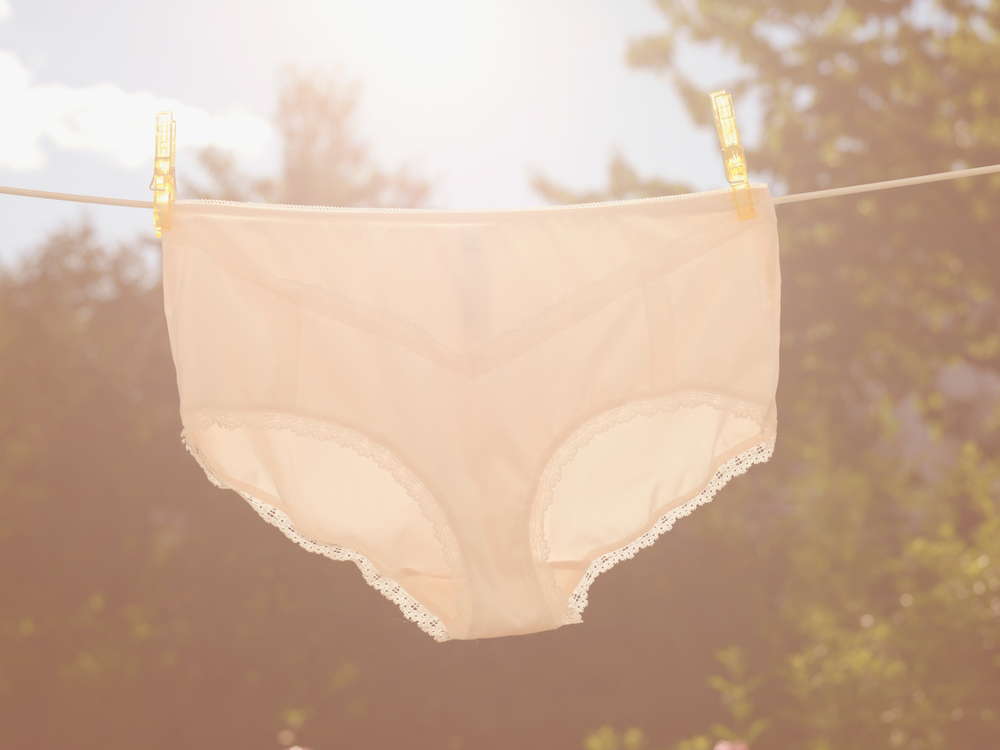
My Favorite organic bras and underwear
There have been quite a few organic, sustainable brands that have come onto the market in the last few years. I have gladly replaced my Target seamless underwear and my underwire bras for Knickey underwear and their organic cotton bras.
Knickey is a woman founded company with the most comfortable organic bras and underwear I have ever worn. They use certified organic cotton, are GOTS certified and made in a Fair Trade Certified facility in Tirupur, Tamil Nadu, India.
One feature I really appreciate when buying any type of clothing is the ability to see the clothing on models my size or similar. Knickey’s size range is XXS – XXXL and you have the ability to change the model online to see the bra and/or underwear in various sizes.
Knickey’s Organic Bras
Knickey’s organic bras are super comfortable and supportive. I have The Triangle bra and The Keyhole bra. If you have deflated mom boobs (sameeeee), the loop bra offers a little more support than the triangle, though both are very supportive.
Since their bras are considered bralettes, they aren’t an underwire bra and you won’t find the banding, straps or any parts digging into your skin.
For the last two years, I have had some type of skin condition on my chest between my breasts and under that I haven’t been able to shake. I tried antifungals, anti-yeast creams and lotions of all kinds. When I made the switch to the Knickey bras, I noticed it finally started to clear up. Most likely from allowing that area to breathe with the organic cotton.
Knickey’s Organic Underwear
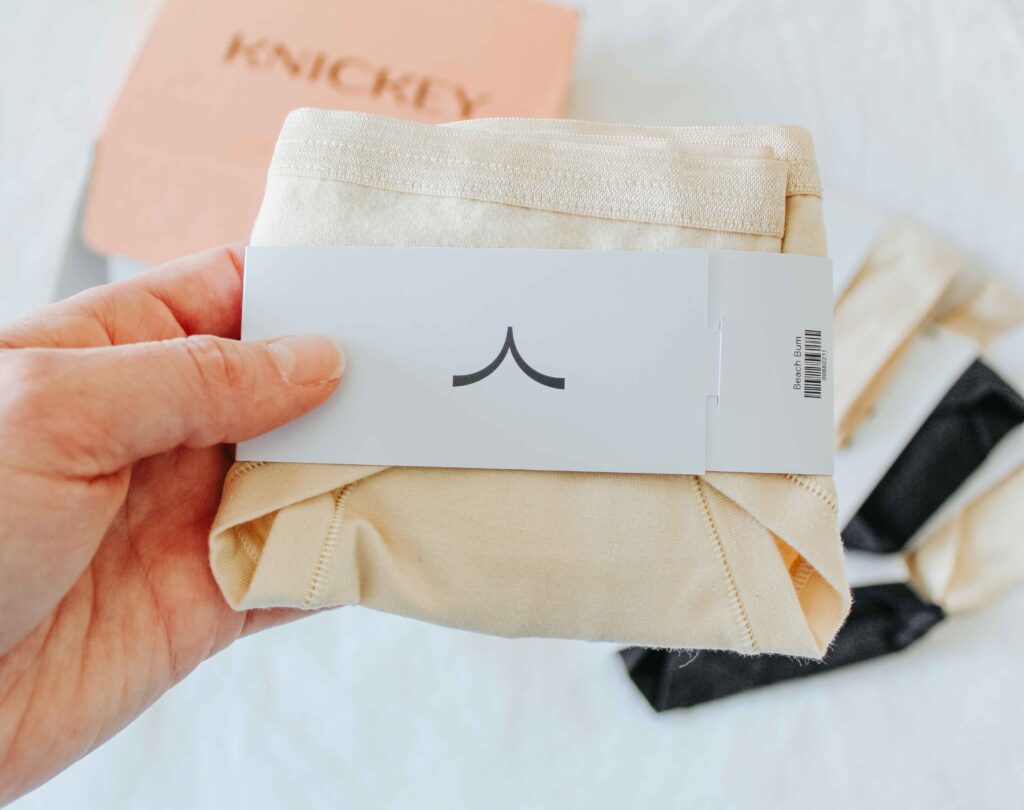
I promise if you try the underwear, you won’t be disappointed. While I generally wear thongs to prevent a seam from showing, I can wear skinny jeans with the briefs, they have clean lines and I never have a problem with seams showing.
You also won’t find your underwear rolling down or digging into your hips – my two biggest pet peeves with underwear.
Both the underwear and bras wash and dry nicely and stay like new.
Knickey provides a recycling program where you can send back your old underwear for recycling. Your old undies can go on to be made into insulation or even yarn. You can send in 5-200 pairs.
While the shipping label costs $5 for the recycling program, you will receive a free pair of underwear, worth about $17.
Take Action
A great, inexpensive way to make the transition to organic bras and underwear is to try a pair of organic underwear from Knickey via their recycling program. If you return 5 pairs of old underwear, you can get a free pair of new organic underwear to try. When you discover you love them, check out their discounts when you purchase 3 or more.
If you aren’t ready to purchase new bras or underwear at this time, consider washing your new clothing before wearing. With the amount of chemicals that go into so many textiles these days, it’s best to wash at least one or two times before exposing potential chemicals to your home and body.
I have not yet been able to try other organic underwear brands as I have loaded my underwear drawer with Knickey products, but some other organic and sustainable underwear brands are Botanica Workshop, Organic Basics, Wama and Pact.
If you’re interested in organic clothing with sustainable practices, Mate the Label made in Los Angeles has the most incredible t-shirts and I highly recommend them.


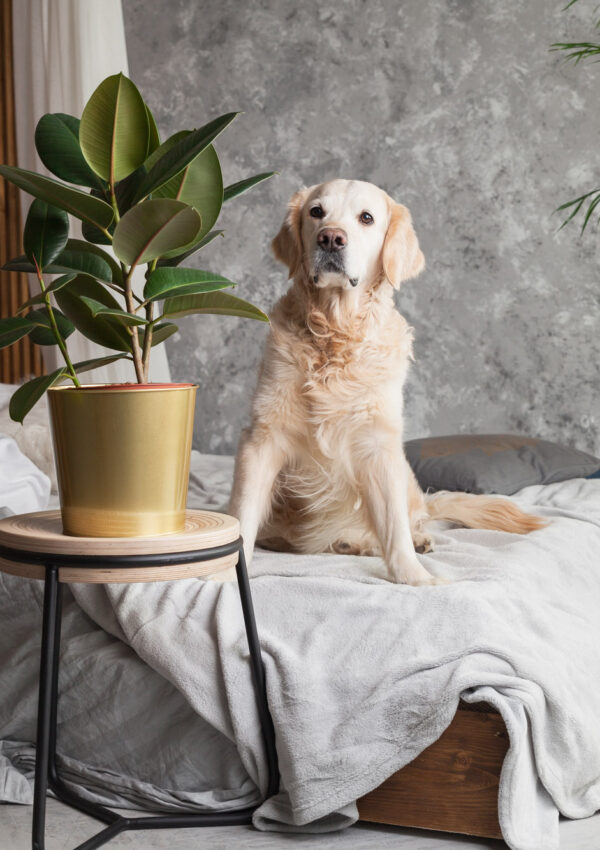


Do you know of any sculpting under garments that are toxin-free?
Hi Dede, I haven’t tried any of these so I’m not sure how well they work, but here’s what I found:
Nat’V has a line of non-toxic shapewear. It’s not organic, but they are Oeko-Tex certified and focused on sustainability. https://natvbasics.com/collections/tones-collection.
I’ve heard great things about the brand, Boody. It looks like they have a smoothing short in their collection.
Mate the Label doesn’t yet have any shapewear collection, but I truly love and use their products. They have an activewear line here and would be a brand to keep an eye on for shapewear as they have really expanded their collection lately.
Pact is another brand to keep an eye on, though I haven’t yet tried their products. They have an expansive line of non-toxic clothing here.